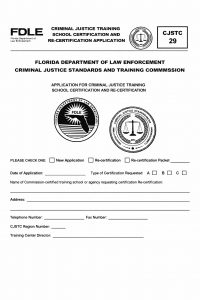For job seekers with legal concerns and employers conducting due diligence, the question of warrants appearing on background checks creates significant anxiety. Job candidates worry that past legal issues could prevent employment opportunities, while employers need clarity on what information they can and should consider in hiring decisions.
Our checks can reveal outstanding warrants depending on package and jurisdiction. This guide explains what both parties should know about warrants in the background screening process.
Types of Warrants That May Appear
Not all warrants are created equal, and their visibility on background checks varies based on several factors:
Arrest Warrants
Arrest warrants are issued when law enforcement has probable cause to believe an individual has committed a crime. These warrants authorize police to arrest the named person and are typically entered into local and sometimes state or national databases.
On background checks, arrest warrants are most likely to appear when they originate in the same jurisdiction where the check is being conducted. Cross-jurisdictional visibility depends on whether the warrant has been entered into shared law enforcement databases.
Bench Warrants
Bench warrants are issued directly by a judge, often for failure to appear in court, violation of probation, or non-compliance with court orders such as child support payments. Though they may seem less serious than arrest warrants, bench warrants can still appear on certain background checks.
Their visibility depends on whether the screening includes courthouse records searches in relevant jurisdictions and how thoroughly those records are maintained and digitized.
Federal vs. State Visibility
Federal warrants are issued for federal crimes and entered into national databases, making them more likely to appear regardless of geography. State and local warrants may have more limited visibility, especially if they haven’t been entered into national databases. Their appearance often depends on whether the screening includes the specific jurisdictions where the warrants were issued.
Does the Type of Background Check Matter?
The comprehensiveness of a background check significantly affects whether warrants will be discovered during screening.
Level 2 or National Checks
More thorough background checks, particularly fingerprint-based Level 2 screenings or comprehensive national checks, have a higher likelihood of revealing warrants. These checks typically access FBI databases, multi-jurisdictional law enforcement databases, state criminal record repositories, and national criminal databases.
These more extensive checks are common for positions in healthcare, education, finance, and government, where safety or security concerns are paramount.
Local Checks May Miss Certain Records
Basic or localized background checks often have significant limitations when it comes to warrant detection. County-level checks only reveal warrants issued within that specific county, and name-based searches may miss warrants if there are variations in how a person’s name is recorded. Additionally, databases may not be updated in real-timeframe, potentially missing recent warrants.
For employers, understanding these limitations is crucial when determining what level of background check is appropriate for different positions.

How We Uncover Legal Red Flags
Our professional background screening process utilizes multiple methods to identify potential legal issues, including outstanding warrants:
Court Record Searches
We conduct thorough searches of court records at relevant jurisdictional levels, including federal court records, state court databases, and county courthouse records. These searches examine both active and closed cases, providing insight into whether candidates have unresolved legal matters.
Law Enforcement Database Integrations
Our screening process includes access to specialized law enforcement databases where legally permitted, including state criminal record repositories and multi-jurisdictional sharing systems. These integrations help ensure that warrants entered into law enforcement systems are properly identified during screening.
Optional Legal Review Add-on
For positions requiring enhanced scrutiny, we offer specialized legal review options that provide detailed analysis of any identified legal issues, context evaluation for warrants, and compliance guidance for employment decisions involving candidates with legal concerns.
What Employers Should Know
Discovering a warrant during a employment background check creates responsibilities for employers that must be carefully navigated:
How to Handle Sensitive Results
When a background check reveals a warrant, employers should maintain strict confidentiality of the information, ensure that only decision-makers with a legitimate need have access to the results, document the finding and subsequent decision-making process, and consider the relevance of the warrant to the specific position being filled.
Importance of Fair Hiring Practices (FCRA Compliance)
The Fair Credit Reporting Act (FCRA) establishes specific requirements for employers using background checks in hiring decisions. Candidates must receive written notice and provide consent before background checks are conducted. If adverse action may be taken based on findings, employers must provide pre-adverse action notice including a copy of the report, and candidates must be given opportunity to dispute inaccurate information.
Beyond FCRA requirements, employers should also consider “ban-the-box” laws in applicable jurisdictions, which may restrict when criminal history questions can be asked during hiring









